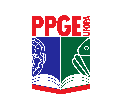Banca de DEFESA: EDIMAR DE ANDRADE MACHADO
Uma banca de DEFESA de MESTRADO foi cadastrada pelo programa.STUDENT : EDIMAR DE ANDRADE MACHADO
DATE: 22/12/2023
TIME: 09:30
LOCAL: Ambiente remoto
TITLE:
What can education do in pandemic times? A review study on remote learning between 2020 and 2022
KEY WORDS:
Education in Pandemic; Educational Technologies. Remote Learning; Review study.
PAGES: 314
BIG AREA: Ciências Humanas
AREA: Educação
SUBÁREA: Ensino-Aprendizagem
SPECIALTY: Tecnologia Educacional
SUMMARY:
The aim of this research is to comprehend the phenomenon of Emergency Remote Education (ERE) within the scope of Brazilian scientific knowledge, considering the roles played by digital information and communication technologies (DICTs), as well as their limitations and possibilities in shaping education during the pandemic period. This is a qualitative research (GIL, 2008), of bibliographic nature with elements of systematic literature review (OKOLI, 2019), and the data analysis is grounded in the assumptions of content analysis (BARDIN, 2021). To understand emergency remote teaching, a focus was placed on academic knowledge produced and published on the subject within the Brazilian context between 2020 and 2022. In terms of theoretical foundation, this research engages with studies and authors from fields of education, digital culture, and their interfaces (NÓVOA, 2022; GATTI, 2020; SELWYN, 2011; 2013; FACER and SELWYN, 2021). The legislation applied is also used to regulate the ERE in the Brazilian context. In terms of results, the research highlighted: 1) the semantic profusion in the process of naming and characterizing educational modalities implemented in response to the pandemic crisis, with emphasis on the efforts of researchers to dissociate ERE from niches such as distance education, at the same time time in which they resort to theoretical and methodological elements of e-learning and hybrid teaching; 2) official documents (resolutions, ordinances and decrees) published at federal, state and municipal levels both helped to standardize teaching activities in a context of social isolation, and generated friction expressed in terms of legal (in)security and legality of the ERE , the use of technologies for the target audience of early childhood education, the lack of clear didactic and administrative guidelines for implementing the ERE, the efficiency of the state in terms of guaranteeing the material, organizational and financial conditions for full compliance with the new rules ; 3) within the scope of teaching strategies and techniques, we highlight familiarization activities with and for the use of technologies, new dynamics of interaction between school and home spaces, recording and production of data on learning processes, active search for students , reconfiguration/expansion of teachers' didactic repertoires, establishment of partnerships between schools and the community to distribute activities and content. Finally, at least at the core of academic discourse, there is a tendency to intensify public and private investment in the processes of integrating digital culture into education in the post-pandemic scenario.
COMMITTEE MEMBERS:
Presidente - 2383992 - GILSON CRUZ JUNIOR
Interno - 1432784 - JOSE RICARDO E SOUZA MAFRA
Externo à Instituição - LYANA VIRGINIA THEDIGA DE MIRANDA - PUC - RJ




